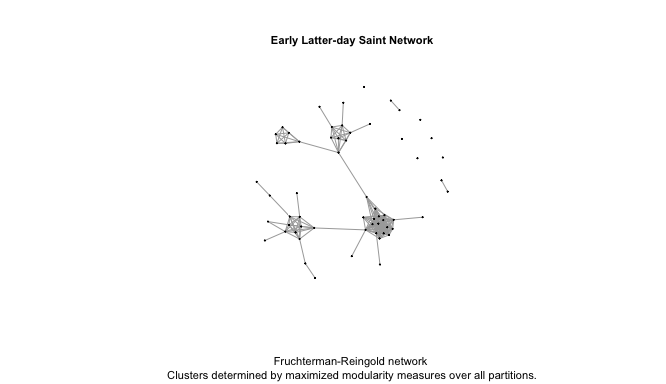-
•
•
23 responses
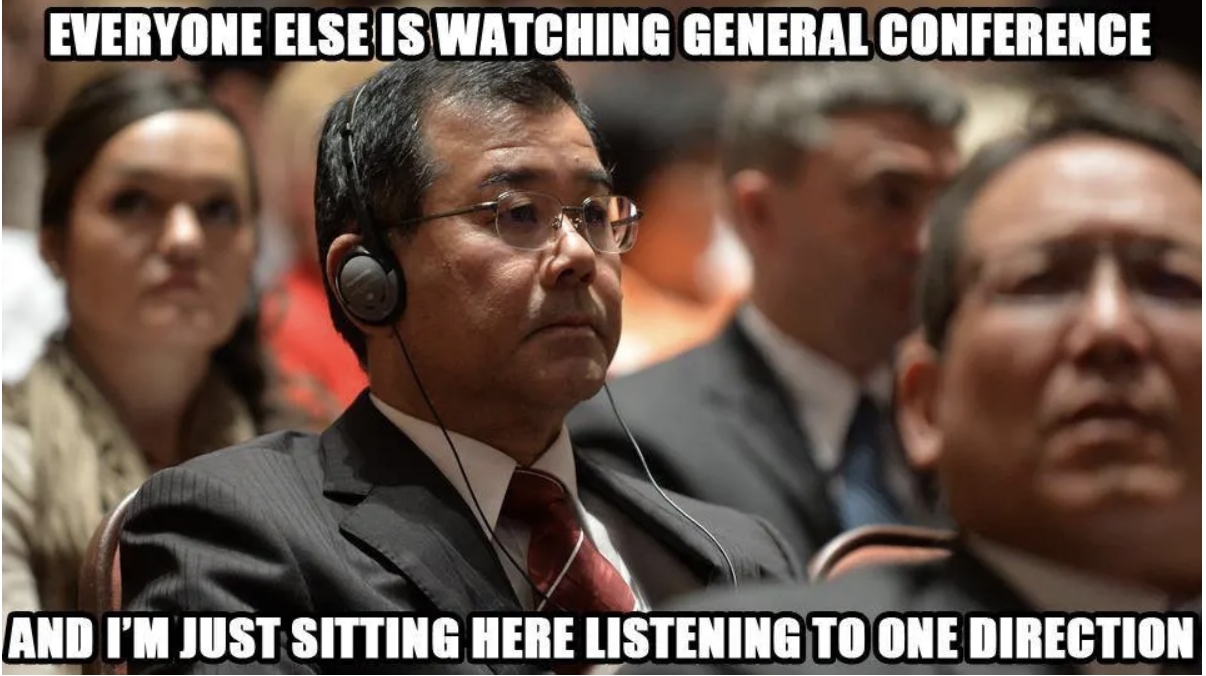
As the father of a lot of small, messy children, I easily listen to two hours of podcasts a day while cleaning (how my parents’ generation cleaned before podcasts I have no idea). The other day a movie producer on a podcast made a comment about how, in the days before streaming, television producers would look at what other shows were running during their same spot to know who they were competing against, whereas now movie and television producers are faced with the fact that whatever they make is competing against everything that was ever made. For the most part,… Read More
-
•
•
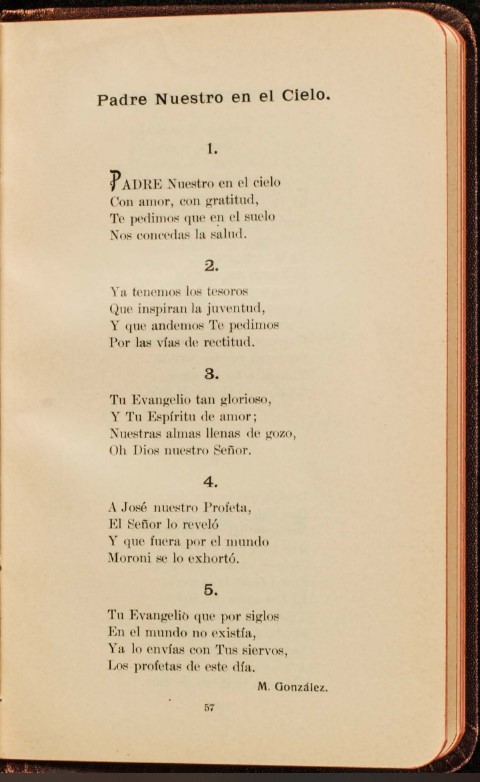
Note: This is a part of an ongoing series, the Mexico Mission Hymns Project. Hymn Text: Padre Nuestro en el Cielo by Manrique González was one of the earliest-published Spanish hymns in the Church of Jesus Christ of Latter-day Saints. It was published in the 1907 Mexican Mission Himnario Mormón (p. 57, see Figure 1) and in the 1912 editions of the Himnos de Sion (p.44). It was cut from subsequent editions of the hymnbook (1927 onwards). Textual changes between the two editions it was included in are minor, consisting solely of punctuation alterations (see Table 1). According to the… Read More
-
•
•
9 responses
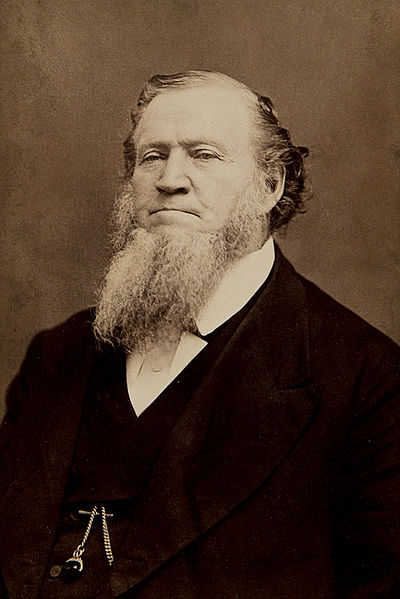
How we understand and view President Brigham Young as the second prophet of the Restoration is often in a much more negative light than how the Prophet Joseph Smith is viewed. In a recent interview at the Latter-day Saint history blog From the Desk, Chad Orton discusses some of why that is and offers additional thoughts on how to view the man who led the Church of Jesus Christ of Latter-day Saints as they colonized the Great Basin region. What follows here is a co-post to the interview – a shorter post with excerpts and some discussion. Much of the interview… Read More
-
•
•
2 responses
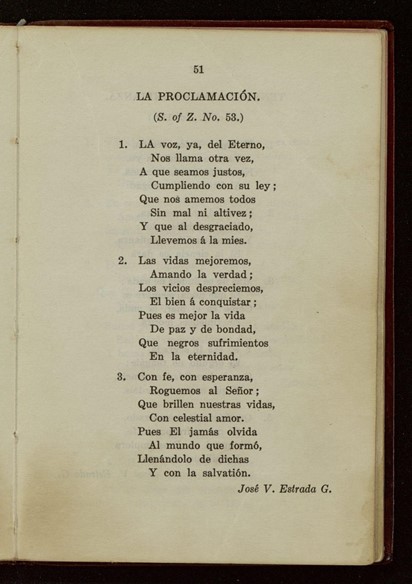
“I know for myself that Joseph Smith was a prophet because I have applied the simple promise in the Book of Mormon: ‘Ask God, the Eternal Father, in the name of Christ’ (Moroni 10:4). In simple words, look up.”[1] ~Adrián Ochoa Note: This is a part of an ongoing series, the Mexico Mission Hymns Project. The Text La Proclamación, by José V. Estrada G., is one of the few hymns original to Mexico that have survived up to the present (1992) Spanish-language hymnbook in the Church. Also called “La voz, ya, del Eterno”, it was was initially included as hymn… Read More
-
•
•
4 responses
I’m excited to announce a new project that I’ll be sharing on Times and Seasons over the next few months – my Mexico Mission Hymnody project. A few years ago, a future new edition for the Hymns of the Church of Jesus Christ of Latter-day Saints was announced. While working on what would become my first post on Times and Seasons, I talked a lot with friends about what the next hymnal might look like. Virtually all of my friends who had served in Spanish-speaking missions mentioned loving a song that didn’t have any English equivalent – “Placentero nos es… Read More
-
•
•
Ezra is an important figure in the Hebrew Bible, but there are some concerns that have been raised over the historical record around him and some interesting places where he is missing in that record. In an interview over at the Latter-day Saint history blog From the Desk, the Biblical scholar Charlotte Hempel discusses some of the theories and thoughts around Ezra, with a particular focus on the Dead Sea Scrolls. What follows here is a co-post to the interview (a shorter post with excerpts and some discussion). One of the central questions in the debate is whether or not… Read More
-
•
•
8 responses
Have you ever performed a ritual shaking of the dust from your feet? I never have (in fact, I’m pretty sure I was specifically instructed to not do that as a missionary), though as a 20-year old, I was somewhat tempted while serving a full-time mission on a few occasions. In an interview over at the Latter-day Saint history blog From the Desk, Samuel Weber discussed some of the intentions behind the ritual in the first place and also why it is no longer performed in the Church today. What follows here is a co-post to the full interview (a… Read More
-
•
•
Grass Roots in Mexico: Stories of Pioneering Latter-day Saints by F. LaMond Tullis (Provo: Religious Studies Center, Brigham Young University, 2021) was one of the books I was most excited to see on the lists of books coming out in 2022. Released in early July, Grass Roots in Mexico offers an important glimpse into the Church’s history in Mexico. The first two chapters give a brief overview of the Church of Jesus Christ of Latter-day Saints in Mexico. These are followed by 19 chapters of short biographies or vignettes of Latter-day Saints in Mexico. The selection includes a range of… Read More
-
•
•
76 responses
At a recent post over at BCC, a tenured BYU-X professor communicates some anxiety about CES’ new direction, which is certainly their right, but in doing so the author calls the people who made this decision (i.e. the brethren, if that wasn’t clear from Elder Holland’s talk) autocrats, and prominently displays the fasces at the top of the post. Now, I don’t know if this is a weird attempt at a “they who have ears to hear” thing, but the fasci is a well-established symbol of fascism. Implying that the people who actually have the power to do anything about… Read More
-
•
•
6 responses

I was recently informed that Rodney Stark passed away. For the uninitiated, Rodney Stark was a force of nature in the sociology of religion. His interests ranged from early Christianity to UFO movements, and agree with him or not, he was a giant in every field he engaged. His theories helped shape the strategies of the Church’s research division for a while, and he always had a soft spot in his heart for Latter-day Saints. He didn’t win any popularity contests in sociology as an institution, but frankly that’s more to his credit in a field that doesn’t brook a… Read More
-
•
•
5 responses
“Do women have the priesthood?” You would think the answer would be a simple yes or no for members of the Church of Jesus Christ of Latter-day Saints. The reality, however, seems to say differently, with people arguing for a whole spectrum of answers while discussing this topic of perennial interest. In a recent interview at the Latter-day Saint history and theology blog From the Desk, Lisa Olsen Tait shared her historical perspective on how we arrived at the current state of women’s relationship to the priesthood in the Church, drawing on her research that was presented in an article in… Read More
-
•
•
2 responses
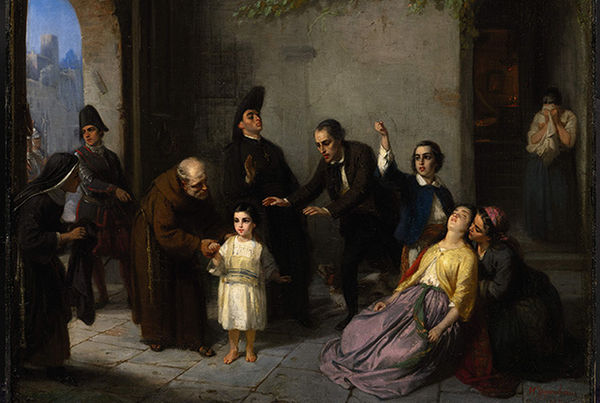
In 1857 officials raided a home in the Jewish ghetto in Bologna, Italy and forcefully removed a 6-year old child based on the testimony of a servant that he had been baptized as an infant and was, therefore, Christian. At the time Bologna was under the direct rule of the Pope (back in the day the Pope ruled over a chunk of Italy as a sovereign). While Catholic canon law stipulated severe penalties for baptizing a Jewish child without the consent of their parents, once a baptism did take place it was considered valid, and sometimes that child was removed… Read More
-
•
•
One response
In the aftermath of the US Civil War, the Church faced a heavy tax settlement that led to a contemplated hiatus in requiring tithing. In a recent interview over at the Latter-day Saint history blog From the Desk, Samuel Brunson discussed how that situation came about, what the leaders of the Church tried in order to work through the situation, and the surprising resolution to the whole incident. Federal income tax was something that first began to be used in the United States during the U.S. Civil War. As Brunson explained: “The Civil War was expensive. And it turned out… Read More
-
•
•
13 responses
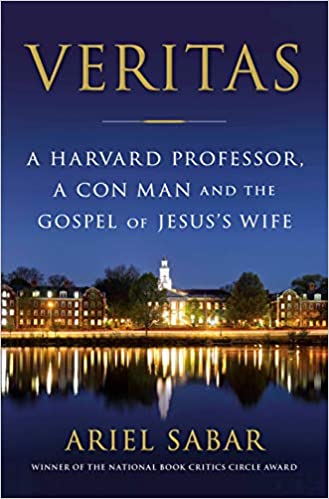
This is a well-written journalistic account of a scandal that happened in the biblical studies community in 2012 when a purportedly ancient parchment surfaced that contained the words “Jesus said to them ‘my wife.’” Despite some red flags such as bad Coptic grammar, Professor Karen King, one of the preeminent scholars in the field, became excited about its potential to undermine traditional Christian narratives (not ours of course, since, as Chad Nielsen’s excellent post points out, Latter-day Saint theology tends to be open to Christ being married) and widely promoted it until (and a little bit after) some smart amateurs working… Read More
-
•
•
5 responses

Times & Seasons friend and guest blogger Sam Brown has shared with us the obituary of his wife, eminent Latter-day Saint historian Kate Holbrook. We are honored to remember Kate’s contributions to LDS women’s history as co-editor of, among other volumes, At the Pulpit: 185 Years of Discourses by Latter-Day Saint Women, The First Fifty Years of Relief Society: Key Documents in Latter-Day Saint Women’s History, and Every Needful Thing: Essays on the Life of the Mind and the Heart. Kate is remembered also for bridge-building between academic and civic communities, and for fostering rich social connections in the field of Mormon history.… Read More
-
•
•
17 responses
Language is a tricky thing. Sometimes, when someone says a word, it can mean something very different to them than it does to us. This can be particularly true when that person is from the past and the exact meaning of a word changes over time. In a recent interview with Bryan Buchanan about an article by Shannon Flynn at the Latter-day Saint history and theology blog From the Desk discussed a major example of where this seems to have happened in our understanding of the afterlife about divisions within the Celestial Kingdom. What follows here is a copost –… Read More
-
•
•
32 responses
Since I last posted on this, 1) Mormonr published the testimonies of the two bishops involved in the Bisbee case, and 2) the Church came out with their follow-up statement. For point # 1, contrary to the testimony of the law enforcement agent, both bishops indicate that they only knew about a one-off case of abuse. Given that we now have the two bishops (plus the Church, although their information might be based on the bishop testimony) vs the agent who was relaying second-hand information, I think the evidence weighs more heavily away from the scenario implied in the AP… Read More
-
•
•
11 responses
I was privileged to attend the recent dedication of the Washington, DC temple, during which I got thinking about the common themes in temple worship across time and cultures. I’ve always been vaguely aware of these similarities, but I went down the Wikipedia rabbit hole and spent so much time down there that I thought I might as well record my findings. Below are spreadsheets that show various Wikipedia quotes about temple worship across time and cultures (yes, I’m aware that it’s Wikipedia, but Wikipedia is actually more accurate than people give it credit for, and suffices for this purpose… Read More
-
•
•
3 responses
The recently-published Method Infinite: Freemasonry and the Mormon Restoration by Cheryl L. Bruno, Joe Steve Swick III, and Nicholas S. Literski (Greg Kofford Books, 2022) is an insightful and information-packed volume about a plethora of possible points of contact between Freemasonry and the Restoration of the Church of Christ. While many studies of Masonry and the Latter Day Saint movement focus primarily on temple rituals, Method Infinite covers the entirety of Joseph Smith’s life and follows the influence of Masonic ideas and rituals into some of the major branches of Mormonism that emerged in the aftermath of the Prophet’s death. … Read More
-
•
•
2 responses
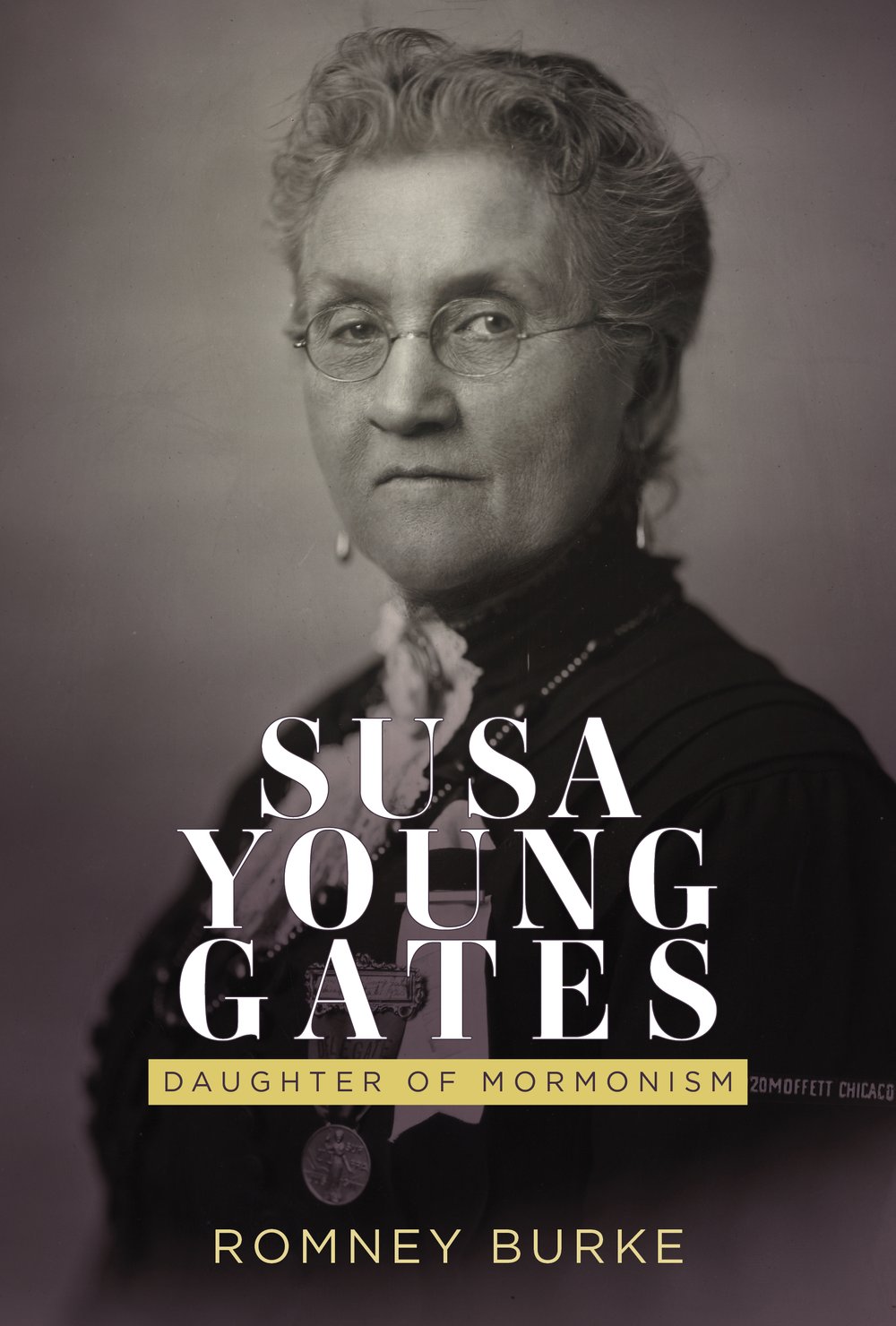
Susa Young Gates was an interesting and important personality, and Romney Burke’s recently-published biography Susa Young Gates: Daughter of Mormonism (SLC: Signature Books, 2022) provides a well-researched glimpse into her life. Perhaps the best-known daughter of President Brigham Young, Susa led a life as a prominent figure in the Church of Jesus Christ of Latter-day Saints. She would go on to serve missions in Hawaii, write prolifically about the Church, serve prominently on the National Council of Women in the United States and also participate in the International Council of Women as a feminist advocate, serve in the general boards of… Read More
-
•
•
38 responses
Like a lot of you, I felt nauseated after reading the AP article that recently dropped, and have been following the story since. There’s always a temptation when something like this happens to give an off-the-cuff hot take, but it was clear that there was a lot to this story to unpack and I didn’t have the time to slodge through and compare/contrast the different accounts, so I waited until somebody came up with a clear outline of everything to see where exactly in the process the ball got dropped. The Mormonr website has now put together such an outline. After reading… Read More
-
•
•
13 responses

An enigma that has been explored repeatedly over the years, both in the Church of Jesus Christ of Latter-day Saints and in Christianity more broadly, is the marital status of Jesus of Nazareth. There is little to reliably indicate either way in the established canon of the New Testament, but that hadn’t stopped people from discussing the topic. And in organizations like the Church that emphasize marriage, there are some theological reasons to want to say that he was indeed a married man. In a recent interview over at the Latter-day Saint history and theology blog From the Desk, Christopher… Read More
-
•
•
13 responses
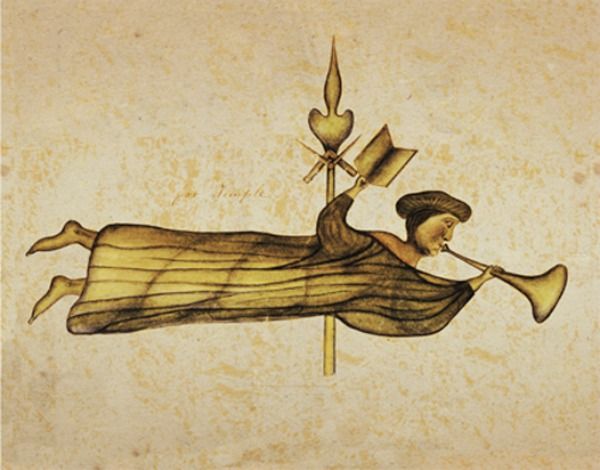
The relationship between Freemasonry and the Church of Jesus Christ of Latter-day Saints is a subject of controversy for members of the Church. In the near future, two important studies of that relationship are slated to be published – Method Infinite: Freemasonry and the Mormon Restoration by Cheryl L. Bruno, Joe Steve Swick III, and Nicholas S. Literski, which will be available on 9 August from Greg Kofford Books (which discusses possible influences of Freemasonry on Joseph Smith’s ministry throughout his life) and Freemasonry and the Origins of Latter-day Saint Temple Ordinances by Jeffrey M. Bradshaw, which is anticipated to be… Read More
-
•
•
23 responses

After the initial splash of the purported Joseph Smith photo being revealed there have been various strands of takes, two of which I thought worth briefly addressing. Also, there’s one more point I haven’t seen anybody address but thought I should raise. He’s too old! I’m surprised at how many people, some of them rather educated and sophisticated, are pointing out that the picture clearly shows a man who is older than Joseph Smith’s 38 years at the time of his death. The fact is that in a world before SPF-50, air conditioned offices, and relatively low maternal and infant… Read More




